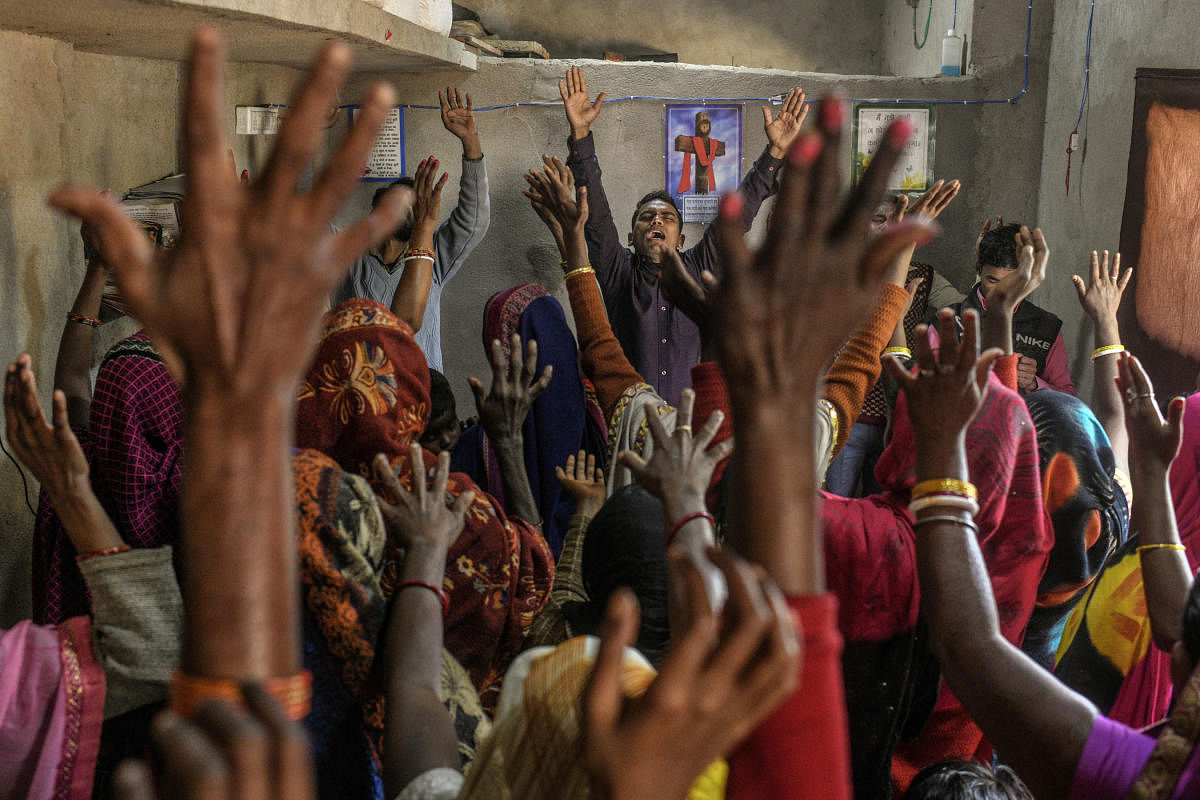The ironically titled ‘Karnataka Protection of Right to Freedom of Religion Bill, 2021’ seeks to protect the ‘freedom of religion’ by criminalising conversions which are done by ‘misrepresentation, force, fraud, undue influence, coercion, allurement and promise of marriage’. The criminalisation of conversion by allurement and conversion by the promise of marriage are the unconstitutional heart of an unconstitutional bill.
Allurement has been defined very broadly to include the offer of ‘gifts or gratification in cash or kind’ as well as ‘employment or free education.’ Philanthropic activities, be it the running of schools or vocational centres, can easily be tarred as criminal activities being done for the purpose of conversion. This is not a figment of the imagination if we see the recent shocking incidents of right-wing forces making a forcible entry into Christian-run schools and disrupting Christmas celebrations, alleging conversion.
The Bill further states that the burden of proof will be on the ‘person who causes the conversion’. Simply put, this means that the person who intrudes into a school alleging conversion has to be believed and the police will have to register an FIR. During the trial, the person against whom the charge of conversion by allurement is alleged, has the burden of proving that he or she did not do any conversion.
This reversal of the burden of proof goes against the fundamental tenet of criminal law that a person is innocent until proven guilty. This reversal of the burden of proof, combined with the broad definition of ‘allurement’, makes every Christian institution offering services, be it schools, vocational centres, hospitals or social service organisations, vulnerable to false charges and harassment.
The Bill also targets love marriages, especially if they are across lines of religion, by criminalising conversion with the ‘promise of marriage’. The criminalisation of conversion with the ‘promise of marriage’ violates a core aspect of the Constitution, namely the right to marry the person of one’s choice and to have the faith of one’s choice. This is violative of the constitutional recognition of the sanctity of individual choices.
In Shafin Jahan vs Asokan, the Supreme Court asserted the freedom of choice of the individual over ‘social approval’ and stated that ‘neither the State nor the law can dictate a choice of partners as this forms the essence of personal liberty under the Constitution’.
The Bill finally drops the pretence that it is only concerned with illegal conversions by going on to restrict the right to convert with bureaucratic and police regulations. Under Section 8, the one who desires to convert as well as the one performing the conversion must submit a form to the District Magistrate 30 days in advance. The District Magistrate will then notify the proposed conversion on the notice board of the office of the Tahsildar, calling for ‘objections’, and if there are objections, he will then do an inquiry with regard to ‘genuine intention, purpose and cause’ of the conversion’. The police are then empowered to take action based on the finding by the Tahsildar.
The requirement of notice for conversion is itself a violation of the constitutionally recognised right to privacy, which was laid down by a nine-judge bench of the Supreme Court in Puttaswamy v Union of India.
This Bill must be resisted by all who believe that charity ought not to be criminalised, that love across lines of religion is nothing other than the fulfillment of the constitutional promise of fraternity, and that the freedom to choose one’s religion is a core freedom which accrues to all persons by virtue of being human.
(The writer is a founding member of the Alternative Law Forum, Bengaluru)
